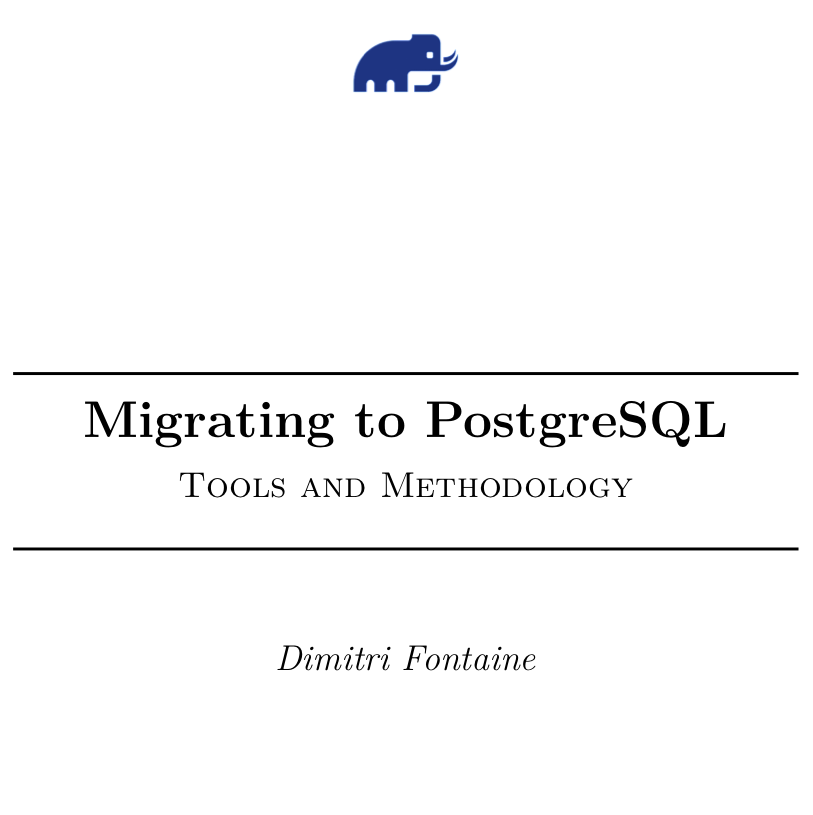pgloader loads data into PostgreSQL and allows you to implement Continuous Migration from your current database to PostgreSQL. Read the White Paper to learn how to limit risks and control your budget, and start your PostgreSQL migration today!
Introduction

pgloader has two modes of operation. It can either load data from files, such as CSV or Fixed-File Format; or migrate a whole database to PostgreSQL.
pgloader supports several RDBMS solutions as a migration source, and fetches information from the catalog tables over a connection to then create an equivalent schema in PostgreSQL. This means that you can migrate to PostgreSQL in a single command-line!
Supported operations include:
- Migrate from MySQL to PostgreSQL
- Migrate from SQLite to PostgreSQL
- Migrate from MS SQL Server® to PostgreSQL
You can also migrate from database files in the DBF and IXF formats, where pgloader can inspect the target table format for you automatically in the file headers.
Migrating to PostgreSQL: the White Paper

The White Paper titled “Migrating to PostgreSQL, Tools and Methodology” explains the idea of Continuous Migration. The paper also covers migration projects budget decisions and risks mitigation. It’s free and contains all you need to get started, including a PostgreSQL Architecture primer!
pgloader documentation

Looking for pgloader’s documentation? It is now hosted at http://pgloader.readthedocs.io/en/latest/.
It contains a tutorial for the many different source types supported, code samples, simple and complex load files and command line examples, and a full reference of every option available.
Sustainable Open Source Development
Open Source Software development is a magic that happens when people form a team and create a product together. Multiple roles take part of the magic, including developers and also users, bug reporters, testers, packagers, etc.
You can contribute to pgloader development by either contributing your time on the github project or purchasing a moral license.
Professional Services
If you require assistance for migrating to PostgreSQL, contact us!





